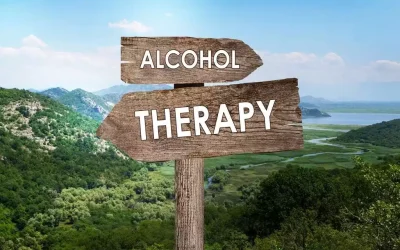Content
However, they also have to submit to random drug testing, adhere to a curfew, and follow house rules. Most likely, insurance will not cover this type of housing, because it is not considered a mental health treatment center. Since sober living homes are often financially independent, they usually do not accept insurance. Residents’ insurance may, however, help cover addiction treatments – like therapy. Numerous studies have shown that most people who live in sober homes after attending treatment have low rates of relapse and are able to live productive lives.
Sober living homes are a great option for individuals in recovery, as they encourage residents to develop healthy coping skills and habits for when they return home. Today, sober houses are “free-standing,” independently owned and operated. They’re not licensed by an official body, nor do they provide licensed professional services onsite. One of the reasons longer treatment times are more successful is that drug and alcohol abuse changes the way the brain functions. As an individual becomes dependent on a substance, the parts of the brain which control behavior, learning, memory, and perceived risk/reward actually change. Developing the tools needed to sustain yourself in sobriety is an essential part of recovery.
How Do You Find a Sober-Living Home?
It includes building relationships, supporting others and practicing healthy ways to overcome triggers. At North Jersey Recovery Center, we strive to make your addiction treatment experience as comfortable as possible. If someone has broken curfew, there are typically consequences such as being kicked out of the house with no other place to go or having their privileges revoked.
Most of the time, residents share communal spaces, like kitchens, living rooms, and backyards. Sober living houses (also called halfway houses or recovery houses) refer to group residences for people recovering from addiction. While sober living houses have research touting their efficacy, it is also important to remember that they are still environments where you are living with others and the focus is on staying sober. These are residential facilities that provide structure and support for those healing from addiction. They are designed to be a transitional space from residential treatment to mainstream society.
How to Pay for Your Stay at a Sober Living House
While there is no exact formula that can tell you how long you might want to stay in sober living homes, experts agree that longer stays offer more lasting results. There are mental health, lifestyle, and biochemical changes involved with addiction treatment and recovery, all of which take time to accomplish. After rehab, many sober people enroll in a sober living program to receive additional support as they transition out of rehab and into a more independent lifestyle. Living sober on your own for the first time can be challenging, but sober living homes provide one-on-one support in a safe, sober, and supportive living environment. They are often an essential part of the treatment process for people who are not yet ready to face the everyday stressors of life in recovery. Maintaining sobriety can be a difficult process, however, a sober living house may provide you with the kind of structure and support you'll need to maintain your sobriety.

Halfway houses are also government-funded and have fewer amenities than a sober living home. They tend to be more like dorms, with up to 12 residents, unlike smaller sober homes that offer more privacy and freedom. The time spent in a sober-living home depends on a number of factors including strength of recovery from addiction, progress on clinical milestones and the personal living situation at home.
Rules & Regulations for Living in a Sober Living House
Your friends or family members may tempt you with alcohol or other drugs by consuming them in front of you. A lot of people may have difficulty adjusting to being at a sober living home and following the rules there. It should come as no surprise that the first rule of staying at a sober living home is to follow all of the house rules that are put into place by the property managers or owners. Each sober living house will have its own specific set of house rules, and these rules are more detailed than the resident requirements listed above. Since sober living houses are in residential neighborhoods, backyards may also be available and will be part of the shared communal space.
- Rehab centers offer intensive recovery programs that help residents overcome addictions by following strict rules and regulations.
- Reach out to us today by filling out the contact form below with your name, contact information, and a brief message about your recovery journey.
- When you are considering sober living homes and treatment services nearby, finding a program that offers the right balance of independence and supportive care should be a priority.
- Some facilities require a minimum number of days of sobriety from substance abuse, but many will work with you to determine if you're a good fit.
- An American Journal of Public Health study compared individuals who lived in a sober living home to those who only received outpatient treatment or attended self-help groups.
In a recovery housing model, residents offer and receive support from their peers and leaders in their community. Research has discovered that communal living can help decrease substance abuse and incarceration rates, and increase employment rates. It can also help individuals hone their coping skills, learn how to communicate effectively, and trust themselves. From early detox to sober living for the future, our programs empower individuals to break free of addiction and choose a new direction for their lives. You can make the choice to stay with us or another treatment center, but finding the right fit for your own recovery begins with taking action today.
Addiction and Mental Health Resources
There is no time limit on how long someone can live in a sober living house. While meeting attendance and household duties may be required, there isn't regimented treatment programming present in the home. We offer a continuum of care in our intensive outpatient program, one that focuses on relapse prevention and the continuous development and application of crucial life skills. The unfortunate how does sober living work truth is that individuals are the most vulnerable to relapse within the first year of recovery. Offering a multi-phased program that covers the entire length of that vulnerable time is extremely conducive to long-term sobriety. Medical detox typically lasts for one to two weeks and will be followed by inpatient treatment, which will generally last for between one and three months.
For instance, some homes request residents to check in with a house manager, and some houses will require periodic drug tests. Many sober houses also have agreements with residents, requiring them to attend 12-step programs or similar support groups. This support system allows residents to avoid the isolation that can sometimes come with returning home while in recovery. It further provides an environment to support recovery from substance abuse and addiction for those who are emerging from rehab. Sober living homes provide a combination of freedom and structure to help the person begin to adjust to life outside of rehab.
